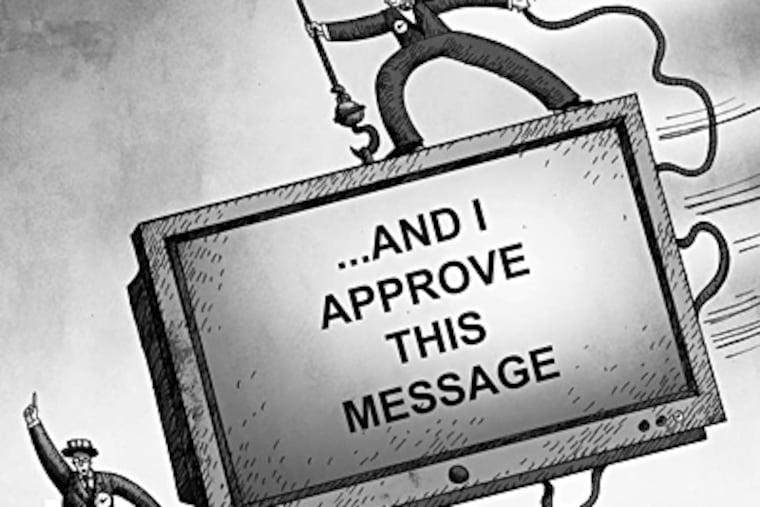Senate primary was a primer in political subterfuge
The public may never know where all the phantom money spent to try to defeat Republican U.S. Senate candidate Tom Smith in Pennsylvania's Republican primary came from. Not that it mattered to the Armstrong County coal executive, who had plenty of cash of his own to counter any onslaught by anonymous donors.

The public may never know where all the phantom money spent to try to defeat Republican U.S. Senate candidate Tom Smith in Pennsylvania's Republican primary came from.
Not that it mattered to the Armstrong County coal executive, who had plenty of cash of his own to counter any onslaught by anonymous donors.
Smith reportedly spent $4 million of his own money and won the right to face Democratic Sen. Bob Casey in the November general election.
Nonetheless, Pennsylvanians, indeed all Americans, ought to be bothered by the campaign-finance shenanigans only recently revealed by the Center for Responsive Politics that occurred in this state.
In Smith's April primary race against four opponents, the one endorsed by the state Republican Party, Steve Welch, benefited from $175,000 in attack ads aimed at Smith that were paid for by a super-PAC called Freedom Fund for America's Future.
But almost all of Freedom Fund's money came from another super-PAC called Fight for the Dream.
Federal rules call for super-PACs to reveal their donors at specific intervals in a campaign, so you might be wondering why we're saying Smith may never know who paid for Welch's commercials.
The answer is that the Fight for the Dream super-PAC's only donor was a group called Restore the Dream, which qualified under Section 501(c)(4) of the federal tax code to be considered a social welfare nonprofit that does not have to disclose its donors.
What a farce. Especially when you consider that Fight for the Dream and Restore the Dream shared the same post office box, which was reported by the Center for Responsive Politics' website.
Want more slime? The Freedom Fund for America's Future hired media consulting firm Brabender Cox, which was also working for Welch's campaign. Brabender Cox claimed no election laws were broken because it assigned different workers to the two projects, but the ads they came up with were very similar.
Such is the state of American politics today.
Public disclosure laws have so many loopholes they are easy to exploit. Any group that wants to spend money on a particular candidate secretly can find a way to do it.
The politicians may know who is really funding their opponents, but without a record, they have no proof, and voters are kept in the dark.
The courts say this is legal, but that just means the laws that allow such subterfuge need to be changed.
It may be that a constitutional amendment is the only way to accomplish that. Toward that end, Sen. Dick Durbin (D., Ill.) has introduced a bill that seeks that goal.